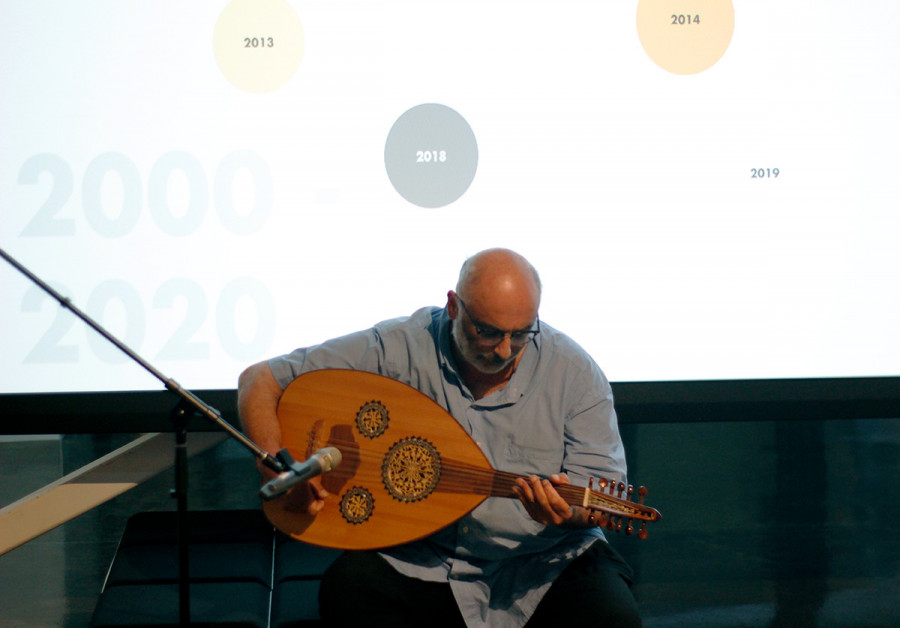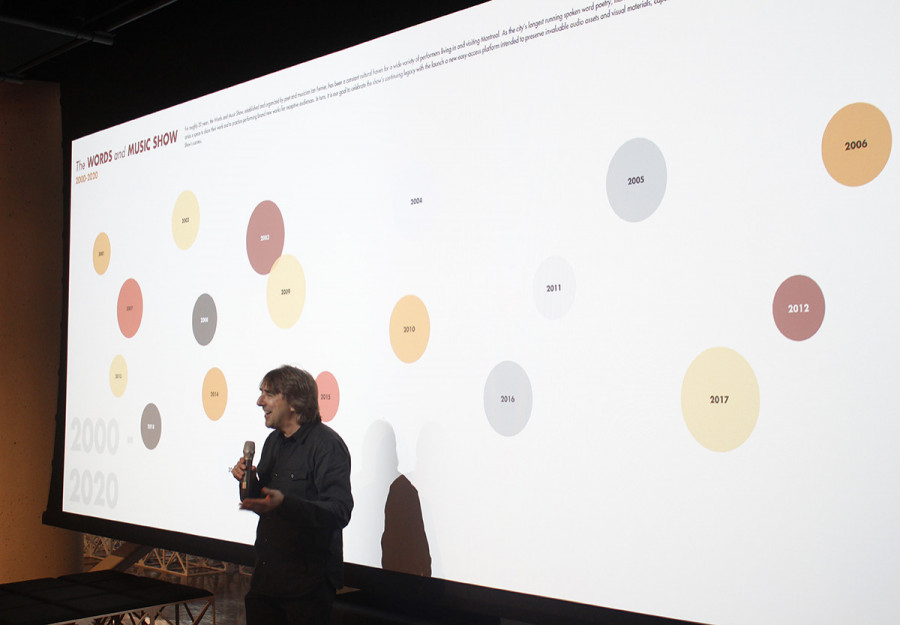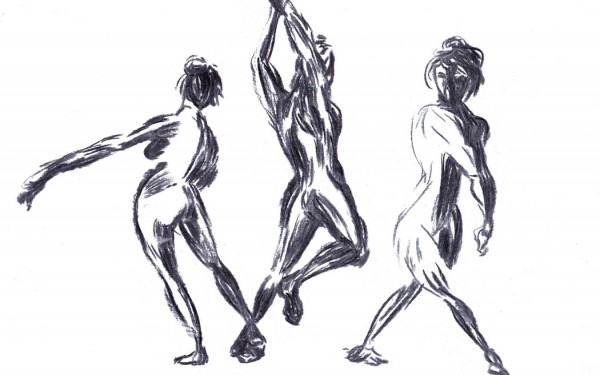The Words and Music Show Becomes a Digital Archive
SpokenWeb Unveils 20 Years of Montreal’s Cult Show
For almost 20 years, Ian Ferrier stored his recordings of the Words and Music Show in tin cracker boxes. His collection is now a cultural repository preserved by the archival project SpokenWeb.
“Oh God, what am I going to do?” recalled Ferrier, the founder of the W&M Show.
“I get kicked out of my apartment because my landlord wants to move in, and I have all these shows […] I have 14 hard drives, I have metal cheese cracker boxes full of MiniDiscs,” said Ferrier.
According to them, the W&M Show is Montreal’s longest running spoken word, poetry, literature, performance, and music show.
On Oct. 10, the crowd was privy to the unveiling of the online recordings on the projected screen, at Concordia’s 4th SPACE.
Since Ferrier first began the W&M Show in 2000, he recorded and documented pictures, posters, radio ads, and of course, the voice and song of every performance.
RelatedSpokenWeb seeks literary sound recordings to add in a Canadian repository of digitized literature.
Concordia English associate professor Jason Camlot, and director for the SpokenWeb literary archive, explained how sound recordings can decay over time. They need to be constantly restored whether physically or digitally.
With a diverse team ranging from literary scholars, designers, media historians, and librarians, the digital archive aims to preserve and adapt audio literary pieces for historical and academic uses.

“One of the big moments in this was taking the MiniDiscs and saying, ‘Oh, I wonder if there’s anything on there anymore?’—And finding out that there was,” said Ferrier.
Concordia English student researchers Andrew Roberge and Ali Barillaro helped in retrieving Ferrier’s collection. Design student Rodrigo Velasco shaped the website where the recordings are restored.
“There’s a thing we’ve been saying a lot about SpokenWeb,” said Roberge. “Audio archives often start with a box of tapes.”
Roberge and Barillaro began with a hard drive that contained most of the photos, posters, and radio ads of the W&M Show from 2000 onward. They divided the hard drive into two sections and began sorting them into their dated categories.
After the hard drive, they received the cracker boxes filled with Ferrier’s MiniDiscs.
“I dove straight in,” said Roberge. “I was ecstatic.”
Each W&M show was around two to three MiniDiscs and each one could contain around 80 minutes of recordings for the scholars to listen.
“We had a lot of material to work with which is fantastic,” said Roberge.
Roberge also mentioned that he learned to transcribe and digitize the MiniDiscs into a computer. He added that digitizing MiniDiscs in academia is not a frequent activity.
“One of the big moments in this was taking the MiniDiscs and saying, ‘Oh, I wonder if there’s anything on there anymore?’ And finding out that there was.” — Ian Ferrier
“From a literary, scholarly point of view, it’s also been great to see and to hear the texture of the MiniDiscs,” said Roberge, “as well as the work of the collaborators.”
Barillaro also helped Roberge to organize the recordings and media, from the shows that took place from 2009 onward.
She explained how they had to sort through different copies of the same show recordings. There was a lot of edited and shortened recordings of the shows to sort through. She said that it was “a bit of a scavenger hunt to find the longest, most unedited version of the event audio.”
“We found a bunch of things like radio ads and all of the visual assets as well,” added Barillaro.
“We didn’t want to change anything,” she said, “We didn’t want to rename everything. To make our lives easier, we wanted to keep things as they are.”
Even though they were transcribing and copying from Ferrier’s hard drive and MiniDiscs, Barillaro along with her colleague chose not to relabel the originals because they wanted to keep their authenticity, “still preserving this in all its chaos and beauty and wonder,” she said.
RelatedBarillaro also noted that as an affiliate of SpokenWeb, “one of the things we’re really interested in are different ways of listening.”
“I am not well versed in poetry,” she said. “This allowed me to learn about poetry here and across Canada.”
Velasco demonstrated how he coded the online map for Ferrier’s recordings. Users can navigate the W&M shows that have taken place since 2000 with access to the audio recordings as well as posters and pictures.
“A lot of people are contained there and I am happy to be part of this,” said Velasco.
Word artists Catherine Kidd and Kaie Kellough who were recorded in W&M Show also performed their works live.
While the online W&M archive is not launched yet, Ferrier is amazed by the sophistication of all the work put into the preservation of his previously cracker-boxed recordings.
Find out more on SpokenWeb’s website.




